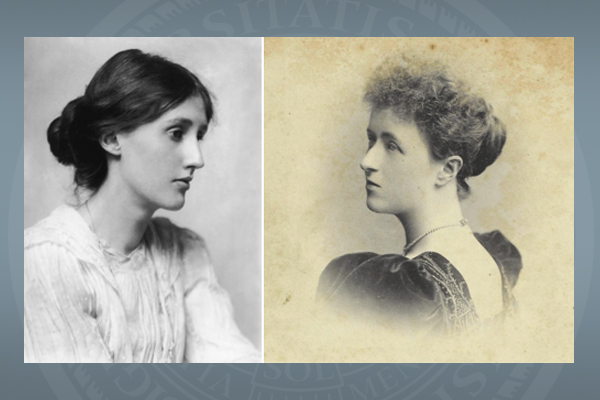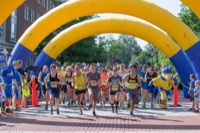
April 28: Virginia Woolf novels
University Library to host lecture by noted British historian David Taylor
10:20 a.m., April 15, 2016--The University of Delaware Library has announced that “Mrs. Dalloway Goes ‘To the Lighthouse’: Virginia Woolf and Kitty Lushington,” a lecture by noted British historian David Taylor, will be held at 4:30 p.m., Thursday, April 28, in the Class of 1941 Lecture Room of the Morris Library.
Light refreshments will follow the program. The event is free and open to the public.
Events Stories
June 5: Blue Hen 5K
June 6-9: Food and culture series
In this lecture, Taylor will use unpublished material from the Lushington archive to reveal the little-known background to Virginia Woolf’s novels To the Lighthouse and Mrs. Dalloway. Taylor will discuss Woolf’s relationship with her childhood friend Kitty Lushington – the real-life Mrs. Dalloway – and the remarkable and well-connected Lushington family.
The Lushingtons took full and creative parts in all the life around them. Their circle of friends, spread across three generations, reads like a Who’s Who of Victorian and Edwardian England and includes names such as Thomas Carlyle, Charles Darwin, Edward Lear, George Eliot, Elizabeth Gaskell, Alfred Tennyson, William Morris, John Ruskin, the Brownings and Ralph Vaughan Williams.
It was Vernon Lushington who famously introduced Edward Burne-Jones to Dante Gabriel Rossetti, a meeting which led to the second phase of the Pre-Raphaelite movement. The Lushingtons were also one of the first promoters of the work of Walt Whitman in the United Kingdom, earning the American poet’s fulsome praise.
Taylor is an historian and author based in Surrey. After many years of persistent enquiry and research, he was fortunate to locate the extensive archive of the Lushington family.
Taylor obtained his doctorate from Roehampton University. His thesis was on Vernon Lushington’s role as a follower of Auguste Comte and the development of Positivism in the United Kingdom. For this he was awarded the Blackham Fellowship and then the Prix de these Auguste Comte from France. He has spent two years cataloguing the archive.








